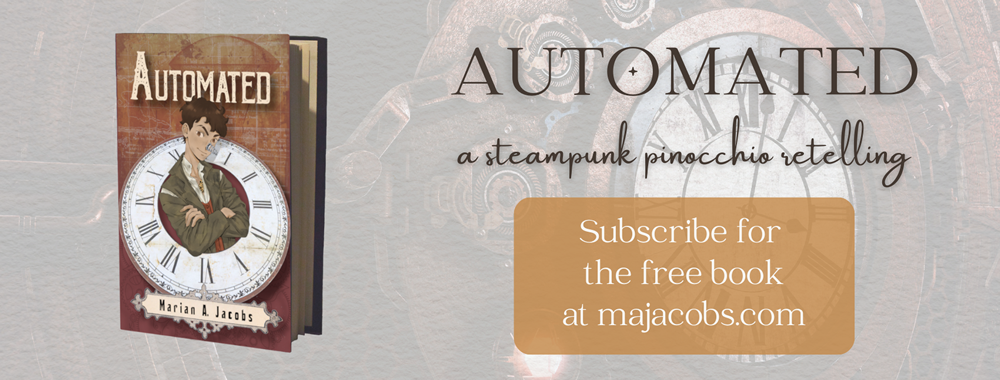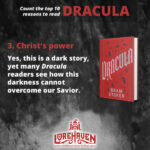Yes, Stories Should Help Heal You, the Reader
Stories with high-running tension shouldn’t try to “wreck” readers, so we should be wary of them. That was the main point of my March 2021 article, “No, Stories Should Not ‘Wreck You, the Reader’.” I made it clear I believe authors may not know the harm their stories cause. Authors can wield tension in good ways for the reader’s good, or in bad ways against a reader’s good.
Series: Stories Can Help Us Heal
My own readers responded differently to that piece. Some agreed. Others thought I was criticizing all books with high-running tension or dark themes.
Because of this misunderstanding, I’ve spent the last several months reassessing how to better communicate this idea. We can’t simply jump into heated discussion about story tension. First, we need to go back a few thousand years and scrutinize the story of one man whose life held more tension than we will ever face: Job.
Scripture introduces Job as a rich man of “complete integrity, who feared God and turned away from evil.”1 God grants Satan power over all that Job owns.2 Soon everything in Job’s life is stripped away—his children, animals, servants, and health.3
Most of the book dwells on Job’s deep and gut-wrenching grief. We listen to his (mostly) righteous laments and the speeches of his so-called “friends,” who only torture him further with their stinging words and bad theology. But as readers, we should find the book’s ending most interesting. In chapter 42, “God restored his fortunes and doubled his previous possessions. . . So the Lord blessed the last part of Job’s life more than the first.”4
Job can help us understand how God intends loss, depression, and despair to affect the lives of his people. Job’s story helps us better grasp when a book uses tension for our good or against our good as readers.
1. Job’s pain had a purpose.
God gives Satan permission to harm Job.5 This shows that Job, despite suffering the worst possible pain, would remain steadfast and not “curse God and die.”6 Likewise, the pain we endure is never in vain. Through our suffering and loss, God refines and sanctifies us. He makes us more dependent on Christ alone, using our stories as God-glorifying testimonies as we store up treasure in heaven.7
If novels reflect reality and truth, their pictures of pain—regardless of severity—should serve a purpose by guiding characters through their journeys, no matter how slow and gradual, toward hope or truth in the midst of tragedies. This is different from tension meant for tension’s own sake that likely won’t serve the reader’s heart. To quote my husband and philosophy professor, Timothy Jacobs, “As Christians, we train and lead our emotions with wisdom. Aimless tension causes chaos. Wisdom doesn’t suppress emotion. It trains it to be stronger and aimed in the right direction.”
2. Job’s descriptions of his pain are overwhelming.
If someone tried to retell Job’s story for a modern audience, readers might reject that version as unrealistic and melodramatic. So yes, books need tension. Lots of it. Stories should explore the depth of human experience, bringing characters through their arcs, probably stumbling and bleeding. Why? Because suffering is real and true. What good is a story that doesn’t bring characters to understanding the truth?8
3. Job’s suffering eventually brings him far greater rewards.
God did not leave Job to suffer forever. In fact, Job 42 says the Lord doubled Job’s possessions and blessed him with children again.9
This passage can seem a little confusing, because Job received earthly possessions that God doesn’t promise us. If anything, Christ promises Christians mostly suffering. We can read the doubling of Job’s possessions as a literary device. It shows that if God wounds us,10 he will eventually heal us even more—even if that healing doesn’t come on earth but in Heaven.
Conclusion: Jesus uses pain for good, and good books should follow him
So what does this truth mean for the stories we read? It means the ending is everything. If a story forces the audience to endure great suffering, this should be nothing to the reward and healing readers receive in the end. Good stories do not simply “wreck the reader,” but end by healing their wounds in such a way that says, “My friend, there is lasting hope in the end. The light shines in the darkness, and the darkness will never overcome it.”11
Christ does not delight in our suffering because he knows suffering even more than Job. Jesus abounds in compassion, love, and empathy. But he also understands that we must suffer for our good and his glory.
Good books should imitate Jesus, harming only with intent to heal.
If you find, however, that an author seems inclined only to hurt you (regardless of their intent), read with caution. You are not obligated to entrust someone you don’t know with your very heart—not even a bestselling author.
Finally, what if you assume none of this applies to you, because you don’t read to gain a knowledge of truth, but only to be entertained? I would like to challenge you to consider the point of entertainment in the first place. As you continue your reader’s journey, meditate on this passage, a biblical command for all believers:
“All things are lawful,” but not all things are helpful. “All things are lawful,” but not all things build up. Let no one seek his own good, but the good of his neighbor. . . So, whether you eat or drink, or whatever you do, do all to the glory of God.
—The Apostle Paul, 1 Corinthians 10:23–24, 31, emphasis added
- Job 1:1, CSB. ↩
- Job 1:12, 2:6. ↩
- Job 1:13–2:8. ↩
- Job 42:10, 12. ↩
- Job 1:12. ↩
- Job 2:9. ↩
- Matthew 6:20. ↩
- If you find yourself disagreeing with this, remember that a character is never complete without a lie to believe and resist as they change and grow. And what is the opposite of a lie but the truth? ↩
- Job 42:10–17. ↩
- See Hosea 6:1–3. ↩
- See John 1:5. ↩












































Great follow-up to your post earlier this year! I love your use of the book of Job to explore this. Not only is he able to pass through his suffering into a rewarding, healed life, but even in the midst of his suffering, we get rays of light through his confidence that his Redeemer lives and will make all things new in the midst of the narrative.
I’ve been thinking on this one, but I think it’s a “Yes and” for my agreement.
Yes, stories should heal, and not all stories heal. Some stories inspire, and other stories encourage, and some reprove and make you think.
Oh this is so true, today it seems usual that there are stories without hope or with a very flimsy “the world is not worth it and all we have is this life let’s take advantage of the good things!” Is that supposed to be enough for me? heal myself from all the pain presented in the story just with the presence of some happy moments? Do you want readers to believe that those stolen moments of happiness are all they can hope for?
I don’t think so…